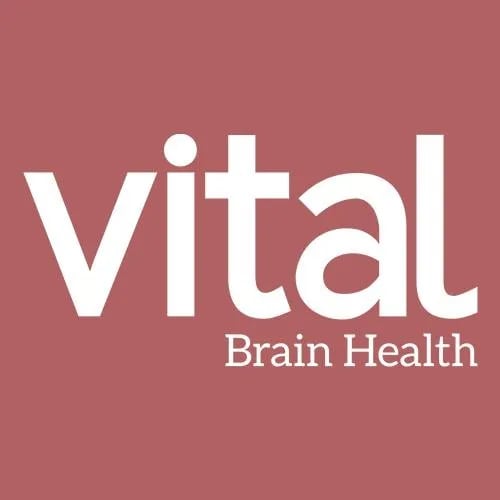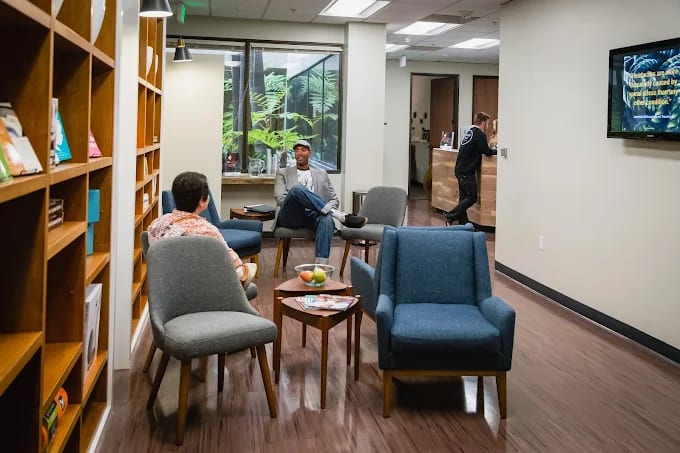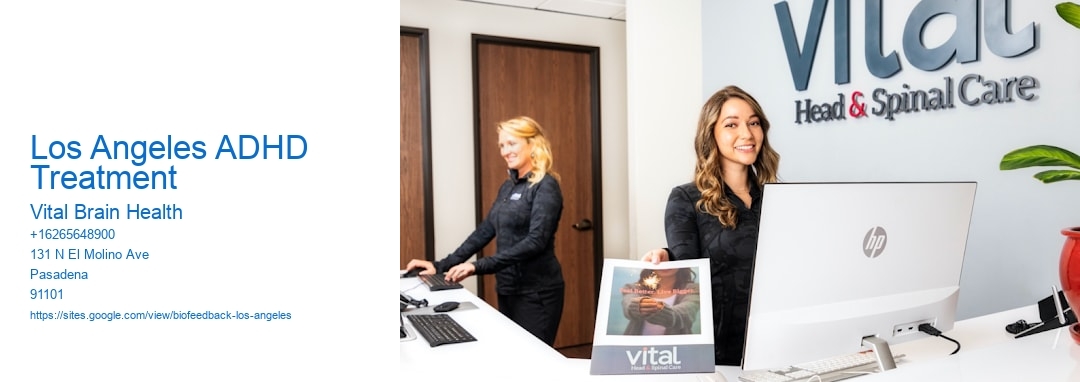Types of ADHD Treatments Available in Los Angeles
Attention Deficit Hyperactivity Disorder (ADHD) is a condition that affects millions of individuals, and for those living in Los Angeles, there is a wide array of treatment options available. ADHD Treatment Los Angeles CA . Understanding these options is crucial for individuals and families seeking effective management strategies for ADHD. The vibrant city of Los Angeles offers various approaches that cater to the diverse needs of its population, ranging from traditional medical treatments to innovative therapies.
One of the most common forms of treatment for ADHD is medication. In Los Angeles, healthcare providers often prescribe stimulant medications such as Adderall and Ritalin. These medications are well-researched and have been shown to help improve concentration and decrease impulsivity and hyperactivity in individuals with ADHD. Additionally, non-stimulant medications like Strattera are also available and can be effective for those who may not respond well to stimulants or wish to avoid their potential side effects.
Beyond medication, behavioral therapy is a cornerstone of ADHD treatment in Los Angeles. Behavioral therapy focuses on modifying specific behaviors and developing new skills to cope with the challenges of ADHD. This approach is often used in conjunction with medication to provide a comprehensive treatment plan. Cognitive-behavioral therapy (CBT), a popular form of therapy in Los Angeles, helps individuals develop practical skills to manage their symptoms and improve their overall quality of life.
Los Angeles is also home to a variety of alternative and complementary therapies that are gaining popularity in the treatment of ADHD. These include mindfulness practices, yoga, and dietary interventions. Mindfulness meditation, for example, has been shown to improve focus and reduce stress, making it a valuable tool for managing ADHD symptoms. Similarly, some families explore dietary changes, such as reducing sugar intake or eliminating certain food additives, as a way to help manage symptoms.
Educational interventions are another vital component of ADHD treatment, particularly for children and adolescents. Los Angeles schools often have programs in place to support students with ADHD, providing accommodations like extended test-taking time or individualized education plans (IEPs). These educational strategies are designed to create a supportive learning environment that meets the unique needs of students with ADHD.

Finally, support groups and parent training programs are available throughout Los Angeles, offering invaluable resources for families affected by ADHD. These programs provide education, emotional support, and practical strategies for managing ADHD at home and in everyday life. Connecting with others facing similar challenges can be a source of comfort and encouragement, helping families navigate the complexities of ADHD.
In conclusion, Los Angeles offers a diverse range of ADHD treatments, from medication and therapy to alternative therapies and educational support. Each individuals journey with ADHD is unique, and finding the right combination of treatments can make a significant difference in managing symptoms effectively. With its wealth of resources and specialists, Los Angeles is well-equipped to support individuals and families in their quest for improved focus and a better quality of life.
Selecting the Right ADHD Specialist in Los Angeles
Selecting the right ADHD specialist in Los Angeles is a crucial step for individuals and families seeking effective treatment and management of Attention Deficit Hyperactivity Disorder. Los Angeles, with its sprawling urban environment and diverse population, offers a rich tapestry of healthcare professionals and resources. However, navigating this landscape to find a specialist who meets specific needs can be daunting. This essay will explore key considerations and steps in choosing the ideal ADHD specialist in Los Angeles, ensuring a tailored and effective approach to treatment.
Firstly, understanding the type of specialist needed is essential. ADHD can be addressed by various professionals, including psychiatrists, psychologists, neurologists, and pediatricians. Each brings a unique perspective and expertise to the table. Psychiatrists, for example, are medical doctors who can prescribe medication and offer a comprehensive treatment plan that may include both pharmacological and therapeutic interventions.
At Vital Brain Health we help with focus training los angeles ca so you can smile a little more while finding balance in life
- At Vital Brain Health we help with anxiety support los angeles ca so you can smile a little more while finding balance in life
- At Vital Brain Health we help with pasadena neurofeedback wellness so you can smile a little more while finding balance in life

Next, evaluating the specialists credentials and experience is important. In a city as large as Los Angeles, the abundance of specialists can be overwhelming. Checking their educational background, certifications, and years of experience treating ADHD can offer insights into their capability and reliability. Additionally, seeking out professionals who have published research or have been involved in ADHD-related initiatives can also indicate a deeper commitment to the field.
Moreover, personal recommendations and reviews play a significant role. Engaging with support groups, both online and offline, can provide valuable insights from others who have navigated similar journeys. These communities often share experiences, recommend specialists, and highlight professionals who have made a positive impact on their lives. Furthermore, online review platforms can offer a broader perspective on patient satisfaction and outcomes.
Accessibility and logistics are also crucial factors. Los Angeles is notorious for its traffic, so considering the location of the specialists practice is important. Proximity to home or work can greatly reduce stress and make regular visits more feasible. Pasadena CA behavioral health therapy Additionally, understanding their office hours, availability, and insurance affiliations can prevent unforeseen complications and ensure a smoother treatment process.
Finally, the importance of the personal connection between the patient and the specialist cannot be overstated. ADHD treatment often requires a long-term commitment, and a strong rapport can significantly enhance the effectiveness of the treatment. Initial consultations can provide an opportunity to gauge the specialists communication style, empathy, and willingness to involve the patient in the decision-making process.

In conclusion, selecting the right ADHD specialist in Los Angeles involves a multifaceted approach that balances professional expertise, practical considerations, and personal compatibility. By carefully evaluating these aspects, individuals and families can find a specialist who not only addresses the clinical symptoms of ADHD but also supports a holistic path to better mental health and improved quality of life.
The Role of Therapy in ADHD Treatment
The bustling city of Los Angeles, with its vibrant culture and fast-paced lifestyle, presents a unique backdrop for the discussion of mental health, particularly in regard to Attention Deficit Hyperactivity Disorder (ADHD). With increasing awareness and diagnosis rates, the role of therapy in ADHD treatment has become a focal point for many individuals and families navigating this complex condition. While medication often takes the spotlight in ADHD management, therapy offers a complementary approach that can address the multifaceted challenges associated with the disorder.
ADHD is characterized by symptoms such as impulsivity, hyperactivity, and inattention, which can significantly impact a persons daily functioning and quality of life. In a city like Los Angeles, where the demands of urban living can exacerbate stress and anxiety, therapy provides a crucial avenue for individuals to develop coping strategies and gain a deeper understanding of their condition. ADHD guidance Pasadena CA Cognitive Behavioral Therapy (CBT), one of the most widely used therapeutic approaches, has proven effective in helping individuals with ADHD identify negative thought patterns and replace them with more constructive behaviors.
Moreover, therapy offers a personalized approach to ADHD treatment that medication alone cannot provide. Therapists in Los Angeles often tailor their methods to suit the unique needs of each client, taking into account cultural, environmental, and personal factors. This individualized care is essential in a diverse city where the experience of ADHD can vary greatly among different communities. By engaging in therapy, individuals can work on building social skills, improving organizational abilities, and enhancing self-esteem, all of which are vital components of holistic ADHD management.
Family therapy also plays a significant role in ADHD treatment, particularly for children and adolescents. In Los Angeles, where family dynamics can be as diverse as the city itself, therapy provides a space for family members to understand and support their loved ones with ADHD. It fosters communication and sets the groundwork for building a supportive home environment that encourages positive change and development.
In conclusion, while medication remains an important aspect of ADHD treatment, the role of therapy cannot be understated, especially in a city as dynamic as Los Angeles. Therapy not only addresses the symptoms of ADHD but also empowers individuals by equipping them with the tools needed to navigate the challenges of everyday life. As awareness and acceptance of ADHD continue to grow, therapy stands out as a vital component of a comprehensive treatment plan, offering hope and healing to those affected by this condition.
Evaluating the Effectiveness of ADHD Treatment Programs
Evaluating the effectiveness of ADHD treatment programs, particularly in a bustling metropolis like Los Angeles, is crucial in addressing the complex needs of individuals diagnosed with Attention-Deficit/Hyperactivity Disorder (ADHD). With the diverse population and range of healthcare options available in Los Angeles, understanding the efficacy of various treatment approaches can significantly impact the quality of life for those affected by ADHD.
ADHD is a neurodevelopmental disorder that manifests in symptoms such as inattention, hyperactivity, and impulsivity. These symptoms can interfere with an individuals functioning and development, making it essential to find effective treatment strategies. In Los Angeles, where the fast-paced lifestyle and competitive environment can exacerbate ADHD symptoms, evaluating treatment programs becomes even more critical.
Treatment for ADHD typically involves a combination of medication, behavioral therapy, and lifestyle changes. Medications, such as stimulants and non-stimulants, are often prescribed to help manage symptoms by improving attention and focus. However, medication alone is rarely sufficient. Behavioral therapy plays a pivotal role in teaching individuals with ADHD and their families strategies to manage symptoms and improve daily functioning. In Los Angeles, where mental health services are widely available, there is an opportunity to combine these treatments with innovative approaches like mindfulness, yoga, and dietary adjustments.
The effectiveness of ADHD treatment programs in Los Angeles can be evaluated using several criteria. First, the reduction in core symptoms such as inattention and impulsivity should be measured through standardized assessments and self-reports. Equally important is the improvement in overall quality of life, which can be assessed through feedback from patients and their families regarding daily functioning, academic performance, and social interactions. Additionally, the accessibility and cultural sensitivity of treatment programs must be considered, as Los Angeles is home to a diverse population with varying healthcare needs and preferences.
Moreover, ongoing research and collaboration among healthcare providers, schools, and families are vital in refining ADHD treatment programs. Los Angeles, with its world-class research institutions and healthcare facilities, is well-positioned to lead in developing evidence-based practices that cater to the unique challenges faced by individuals with ADHD.
In conclusion, evaluating the effectiveness of ADHD treatment programs in Los Angeles involves a comprehensive approach that considers symptom reduction, quality of life improvements, accessibility, and cultural competence. By leveraging the citys resources and fostering a collaborative environment, Los Angeles can offer robust support systems for individuals with ADHD, ultimately enhancing their ability to thrive in a demanding urban landscape.
